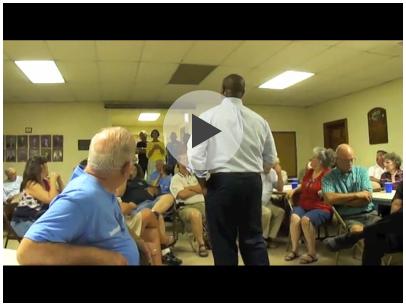[Guest post by Aaron Worthing; if you have tips, please send them here. Or by Twitter @AaronWorthing.]
I have been critical of Laurence Tribe in the past, but I have to say this passage from his Op-ed on whether the President can ignore the debt ceiling, is spot on:
[A]nother part of the Constitution specifically reserves the right to Congress and Congress alone to put us into debt. In Article I, Section 8, Paragraph 2, the Constitution states that “Congress shall have the power … [t]o borrow money on the credit of the United States[.]” That means Presidents don’t have the power to do so, and the Courts don’t—only Congress does. And nothing in the language of Section Four of the Fourteenth Amendment suggests that they were altering this clause of the Constitution so as to give the President the power to take us further into debt without Congress’ consent.
Oh, wait, that isn’t Tribe’s essay. That was from my post at Big Journalism discussing Stengel’s theory that the Fourteenth Amendment empowers the president to unilaterally sink us even deeper into debt. Which is my backwards way of pointing out that Tribe’s reasoning is very similar, when he actually says this:
Other proponents of a constitutional deus ex machina have offered a more modest interpretation of the public debt clause, under which only actual default (as opposed to any action that merely increases the risk of default) is impermissible. This interpretation makes more sense. But advocates of the constitutional solution err in their next step: arguing that, because default would be unconstitutional, President Obama may violate the statutory debt ceiling to prevent it.
The Constitution grants only Congress — not the president — the power “to borrow money on the credit of the United States.” Nothing in the 14th Amendment or in any other constitutional provision suggests that the president may usurp legislative power to prevent a violation of the Constitution.
Which is not a case of one person ripping off another, but rather two people versed in the Constitution reaching the same correct answer using the same reasoning. To be blunt, two lawyers reaching the same conclusion for essentially the same reasons is what is to be expected when they are right.
And truthfully, I think Mr. Tribe out-classed me a little in his argument. For instance, he points out that most people do not like to invest in debt instruments that might not be legal in the first place:
So the arguments for [the President] ignoring the debt ceiling are unpersuasive. But even if they were persuasive, they would not resolve the crisis. Once the debt ceiling is breached, a legal cloud would hang over any newly issued bonds, because of the risk that the government might refuse to honor those debts as legitimate. This risk, in turn, would result in a steep increase in interest rates because investors would lose confidence — a fiscal disaster that would cost the nation tens of billions of dollars.
Do read the whole thing. And I would be remiss if I didn’t mention Ernest Istook’s excellent post on the subject, too, who teases out a few additional wrinkles making it even more obvious that the Fourteenth Amendment was not designed to give the President the power to put us deeper into debt.
Meanwhile I am sad to report that talk of breaching the debt ceiling has led to his plainly racist call for Obama’s impeachment:

(click on the image to view the video)
Of course you probably know I am calling this person a racist as a joke. Honestly, I have never heard the name Tim Scott before today, but I believe he is right on Constitution. Breaching the debt ceiling would be, in my mind, an impeachable offense.
But on the other hand, would the rest of Congress agree to go along with that? So long as the Democrats hold the Senate, that is very much in doubt. That is the Republicans might impeach in the House, but the Senate would not vote to remove.
[Posted and authored by Aaron Worthing.]




